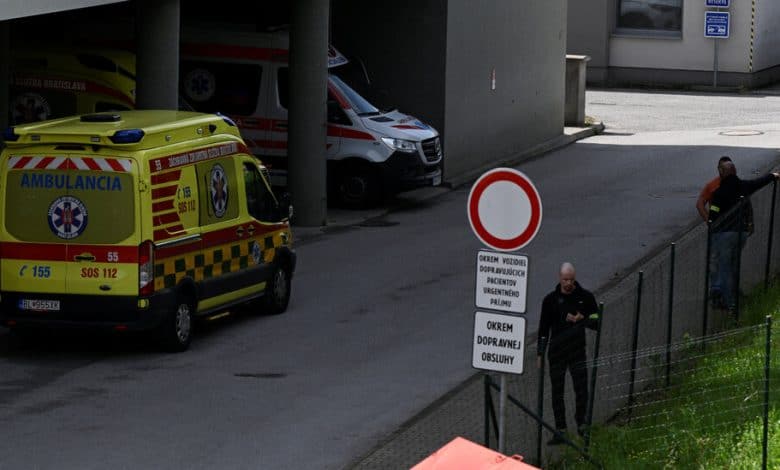Slovak Prime Minister Leaves Hospital 2 Weeks After Assassination Attempt

Two weeks after being shot and seriously wounded in an assassination attempt, Prime Minister Robert Fico of Slovakia was released from the hospital on Thursday and taken to his home in Bratislava, the capital.
Miriam Lapunikova, the director of the hospital in central Slovakia where Mr. Fico underwent several rounds of surgery, told the TV3 television station that the prime minister’s condition had stabilized sufficiently for him to continue treatment at his residence.
Mr. Fico, a combative populist who took office in October after eking out a narrow victory in a parliamentary election, has not spoken publicly since he was shot on May 15 in the Slovak town of Handlova during a meeting with supporters.
His return to Bratislava suggested that he would resume control of a government that opponents have accused of eroding democracy and of putting Slovakia on the same authoritarian path taken by Prime Minister Viktor Orban in neighboring Hungary.
A 71-year-old man was charged with premeditated attempted murder in the shooting, and officials initially described him as a lone wolf. But they later said he might have had accomplices. The suspect, an amateur poet and former coal mine worker with no fixed political views, has been described by some government supporters and by Mr. Orban as a “leftist activist,” but there is no evidence of that.
Political tempers in deeply polarized Slovakia, already at a fever pitch before the shooting, have shown scant sign of calming, despite pleas from both Slovakia’s departing and incoming presidents for rival political parties to watch their tongues. Mr. Fico’s interior minister has even warned about the risk of civil war, a possibility that most observers believe highly unlikely.
During Mr. Fico’s time in the hospital, in the town of Banska Bystrica, a coalition government led by his Smer party pushed through Parliament bitterly contested legislation to overhaul the public broadcasting system. The coalition said this was needed to purge political bias, but opponents denounced it as an attempt to impose Hungarian-style government control over the media.
TV Markiza, a private TV station that has been critical of Mr. Fico’s pugnacious style and policies, recently fired a prominent political host, prompting employees to threaten a strike and raising fears that its owners wanted to curry favor with the government.
Before his dismissal, the host, Michal Kovacic, spoke out against what he said was the risk of “Orbanization” in Slovakia’s media, a reference to Mr. Orban’s tight grip on television and other media outlets in Hungary.
Markiza’s management said in a statement that Mr. Kovacic had been fired “to secure a plurality of opinions.”
